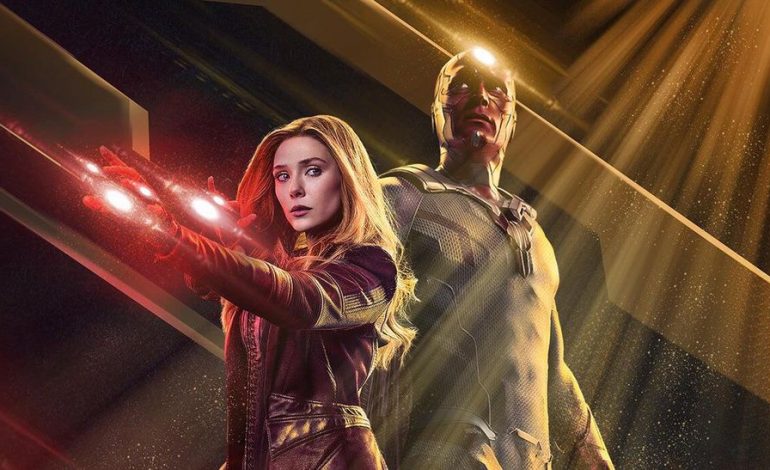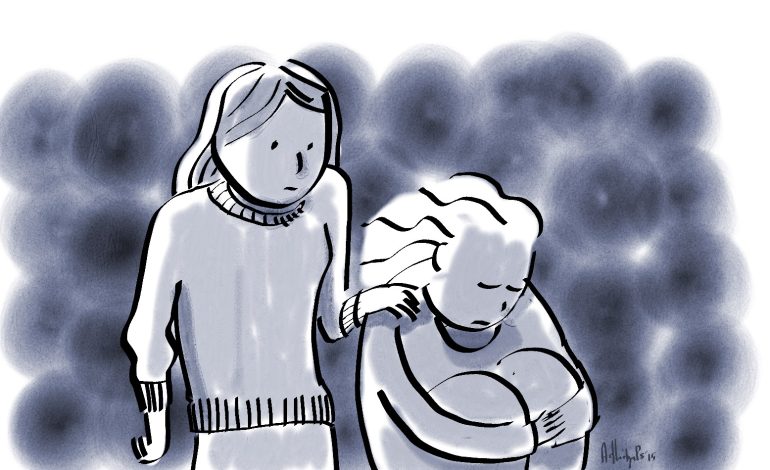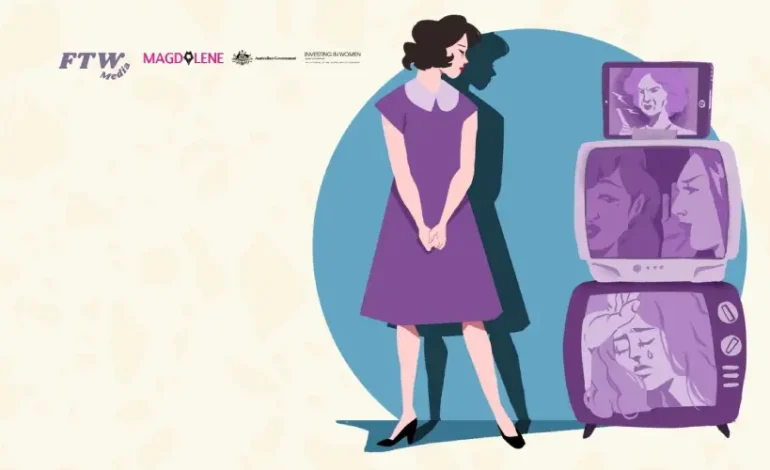‘WandaVision’ is Not That Kind of (Marvel) Show, It’s The Best Kind

I never expected WandaVision, an origin story about an Avengers character to stir childhood memories. I’ve never seen an Avengers movie, definitely not a Disney fan, and last time I checked, I am not a superhero, nor do I want to be. But this series went to a place you’d never expect for an Avengers story; how a girl created an imaginary world and escaped into TV sitcoms to forget her grief, pain and trauma. So while this is a review of the series, I am pretty much going to ignore the whole Avengers business. I am going to talk about what this series means to me and how it has helped me work through my own grief, trauma, abuse and brought me to a place of healing.
By now, you’ve probably already seen the show or have at least read the reviews and have a general idea of what this series is about. I won’t dawdle on the premise and instead go straight into talking about Wanda and how in her grief, her immense power actually managed to create an alternate sitcom reality in which she brought her beloved Vision back to life, or at least, the version of Vision that lives forever in her memories, so they could live the idyllic and ideal sitcom life (whilst taking an entire sleepy small town hostage in the process).
When I first started watching the first two episodes, as delighted as I was with the obvious references to The Dick Van Dyke Show, or Bewitched, or The Donna Reed Show, I wondered why the showrunner and writers of WandaVision chose this particular genre to basically introduce an origin story of an already established character in Avengers. It felt odd, because I enjoyed it but I’m not exactly their target audience, surely? I don’t even watch the movies and everything. But then, as more of Wanda’s story is revealed in the later episodes, it became clear as to why, and that was when I gained a whole new appreciation for the show.
Also read: 10 Feel-Good Shows on Netflix to Distract You from Life
WandaVision is an Exploration of Grief
You see, when Wanda was growing up, she loved watching sitcoms. In fact, when her home got blown up that resulted in the death of her parents, Wanda and her family were watching her favorite episode of The Dick Van Dyke Show. It is obvious why sitcoms would appeal to a girl like Wanda, who grew up in a war-torn country, who’s had to deal with the death of her parents, and then her twin brother, and then the man she loved.
Sitcoms by nature are light and breezy, everything is always wrapped up neatly, there’s never really any dire consequences with a long-term effect, and there’s always this “reset”. Whereby, even in the later sitcoms of the 2010s, you always have that feeling that everything will be alright in the end, and that feeling is precisely the feeling any of us who has had gone through a period of immense grief and trauma would cling to.
This is the reason why WandaVision appealed to me, and why it is probably the show that defines me best, regardless of my utter apathy of Marvel. I could see myself in Wanda, superpower notwithstanding. I was the little girl who found refuge in cheesy sitcoms even when I was too young to be watching sitcoms.
I grew up with a dad who had (at the time) undiagnosed Bipolar Disorder, a disorder I would later inherit, and suffice to say, safe and secure weren’t feelings I was familiar with as a child—mostly because I’d never know what mood my dad would be in at any given moment. I also didn’t have many friends (and for long stretches of time, any friend) so the fictional worlds that books and TV provided me were my safe haven.
Also read: Dear Film and TV Producers: My Sexual Assault Is Not Your Plot-Advancing Device
WandaVision and How People Create Alternate Reality
From an early age, I started doing what Wanda did in the series—created that alternate reality in which she could have the ideal life where everything is always okay in the end, because it was the only way for me to survive. I know that sounds dramatic, considering that I didn’t exactly have abusive parents or a messed up childhood. But I probably have had Bipolar since I was a young age (I didn’t get diagnosed until I was 22 years old) because my mind has always tormented me since I was a child and my moods were always all over the place.
I couldn’t maintain friendships, I couldn’t do well in school, and I had no idea what was wrong with me, no one did. It was just chalked up to being a “problem child” and then later on “rebellious teenager”, as if I liked being that way or doing those things. I didn’t. I was suffering but I had no way of articulating it because I had no idea what was going on with me. Retreating and seeking refuge in that alternate reality was the only way I knew to keep going with life, especially later on in high school when my boyfriend ended up abusing me sexually and emotionally.

Credit: Marvel Studio
During the episode where Agatha the witch took Wanda back to her past to find out exactly how she could “do her magic”, I truly felt like it was one of my therapy sessions with my psychiatrist. During the scene when Wanda was watching Malcolm in The Middle with Vision back in the Avengers compound, Wanda’s explanation to how there’s no real consequence in a sitcom was simple: “It’s not that kind of a show”. That was also when I literally started crying not just because I fully understood the reason why Wanda created that world for her, but because I finally fully understood why I created that world for me.
It’s not that kind of a show. In my alternate reality, even when something bad happened, in the next episode, I’d get a reset. There was no real consequence. It was easier to just stay in that world, just like it was easier for Wanda to just stay in Westview—her sitcom world—because she would always get a reset. Vision would live forever. She could have the kids she’d always wanted with him. There was no real consequence.
For me it meant I could erase my whole high school experience, and replace it with something more wholesome and silly, something along the line of Saved By The Bell meets Growing Pains. But just as Wanda finds out in the end, she can’t stay in Westview forever. Eventually, she needs to lower the hex down and accept the reality. Vision is gone. Everything and everyone she loves is gone. Though her grief may never really fade, in the end she has to start moving on her journey. Because as idyllic as her Westview is, it actually never really existed.
I probably won’t be watching season 2 of WandaVision, if there is one, because it probably will be more about her being the Scarlet Witch than it is about how she deals with her pain and trauma. But I think this first season is perfect. It perfectly encapsulates the journey of a woman dealing with her grief. Her trauma. Her pain. And it gives her time and space to process every single one until she is ready to let go.
Most importantly, it gives me the courage to lower my own hex and step out of my alternate reality. WandaVision helps me see that I will never know how wonderful the actual reality can be, if I never want to face it. I don’t need to retreat into my Westview again, because just like Wanda after she became The Scarlet Witch, I am finally strong enough and powerful enough to face the evils of the real world, if I so choose.






















